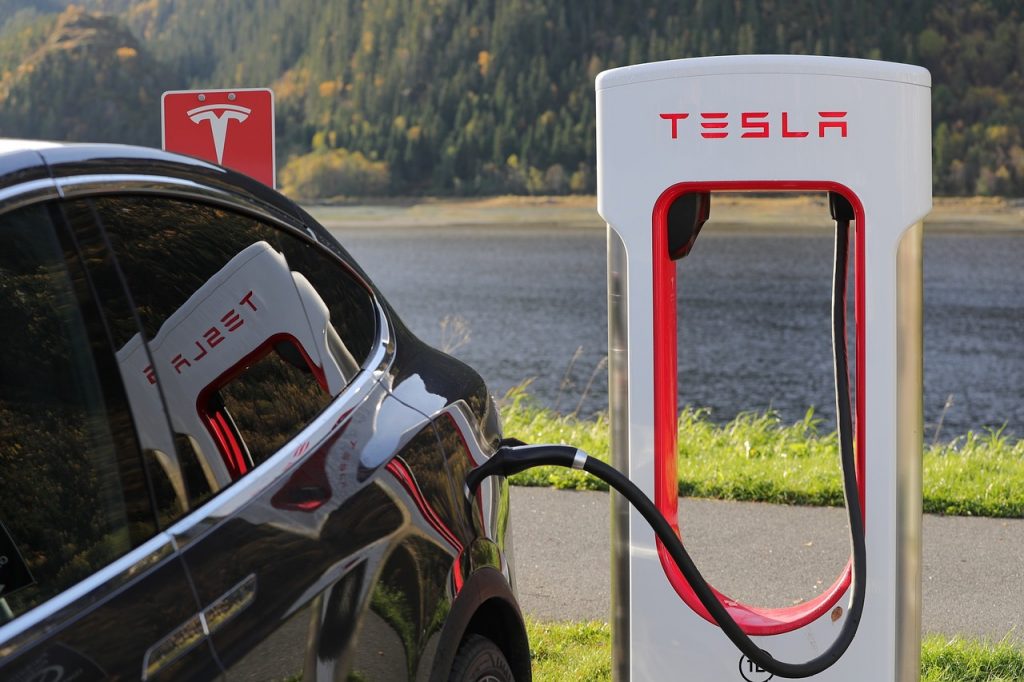Yogi and Carolyn Vindum were still asleep late last year when their Tesla Model S beamed an alert that charging was interrupted. Just over ten minutes later they awoke to a blaring car alarm and a fire consuming their house in San Ramon, Calif. The blaze had started in one of the two electric vehicles in their garage and spread to the other.
“If we had lived upstairs in this house, we’d be dead,” said Yogi Vindum, a retired mechanical engineer.
The previously unreported fire is just one in a string of recent examples showing what can happen when electric cars are left parked in garages to charge overnight. The issue is causing mounting concern as a number of electric-vehicle makers have warned owners not to leave the cars charging unattended in certain circumstances, or sitting fully charged in garages. A fire inspection report cited the Tesla Model S’s thermal management system and a fault in the electrical system as two possible causes in the fire.
Automakers including General Motors, Audi and Hyundai have recalled electric vehicles over fire risks in recent years and have warned of the associated dangers. In 2020 Chevrolet advised owners to not charge their vehicles overnight or keep their fully charged vehicles in garages. Chevrolet ultimately recalled more than 60,000 Bolt electric vehicles over concerns about spontaneous combustion while parked with full batteries or charging, after reports of five fires without prior impact damage. The company issued another recall last month covering the same vehicles after two reports of battery fires in repaired vehicles.
“We don’t think every vehicle has this rare manufacturing defect,” General Motors spokesman Dan Flores said. “But we can’t take a chance, so we’re recalling all the vehicles.” Tesla does not typically answer media inquiries and did not respond to a request for comment. Hyundai spokesman Michael Stewart said the company announced a recall for its Kona EV in March in order to replace the battery. Stewart said owners were advised to lower the maximum state of charge in their vehicles to 80 percent, and park outside until the state of charge is lowered. Audi did not immediately have comment.
Automakers face numerous challenges as they race to get electric vehicles to consumers ahead of regulatory and company deadlines for shifting production away from gas-powered vehicles. They face skepticism about the availability of charging stations, concerns about vehicle range and apprehensions over cost. Fires have drawn attention because of the high-profile recalls and blazes that followed product rollouts, analysts say, further complicating the automakers’ calculations.
Tesla has argued that its cars are a tenth as likely to catch fire as gas-powered vehicles, drawing on data from the National Fire Protection Association and U.S. Federal Highway Administration. Safety experts note that the fires can burn more intensely and last much longer. “Battery fires can take up to 24 hours to extinguish,” Tesla’s website says in an emergency response guide for the Model S. “Consider allowing the battery to burn while protecting exposures.” Tesla owners have reported numerous fires involving older-model vehicles, though not all under the same circumstances. The Washington Post has documented at least five fires involving the Model S, including the blaze on Dec. 30, 2020, that destroyed much of the Vindums’ home in San Ramon. In that case, Yogi Vindum recalled, at least six firetrucks came to the home.
In late 2020 there was a report that flames started shooting out of a five-year-old Tesla Model S in Frisco, Tex., and firefighters struggled to gain access to the cabin after the motorized doors failed to open. Tesla said in 2019 that it sent investigators to the site of an explosion involving a Model S in a Shanghai car park. Surveillance video showed smoke billowing from the parked car before a fiery blast. In 2018, a Tesla Model S caught fire “out of the blue” on a Los Angeles street, said actress Mary McCormack, whose husband owned the vehicle. Tesla acknowledged that the flames came from the battery. In late June, a new, top-of-the-line Tesla Model S Plaid was destroyed when it erupted in flames shortly after the owner took delivery of the vehicle.
Meanwhile, the National Highway Traffic Safety Administration has been investigating Tesla’s battery management system since 2019. The NHTSA says it does not comment on open investigations. Tesla had come under scrutiny over concerns it allegedly manipulated battery software in older vehicles to lessen the risk of fire. The company has proposed a settlement over the issue, and Elon Musk tweeted late last month: “If we are wrong, we are wrong. In this case, we were.”
We represent people who are injured because of the careless and reckless acts of others. At the end of the day your case can only be settled one time and you need to know all of the facts beforehand. The reason that insurance companies have paid our clients in excess of $130,000,000.00 is that we get the facts and are not intimidated at the prospect of going to trial when insurance companies fail to offer full compensation. We help with serious injuries that require serious representation. We are the Law Offices of Guenard & Bozarth, LLP. Our attorneys have more than 60 years of experience specializing in only representing injured people.. Call GB Legal 24/7/365 at 888-809-1075 or visit www.gblegal.com We would be honored to represent you!


